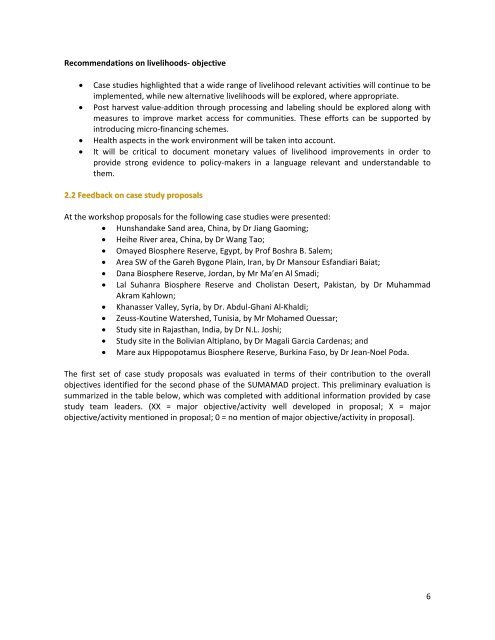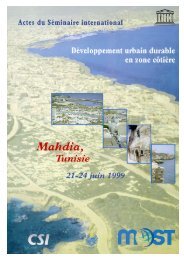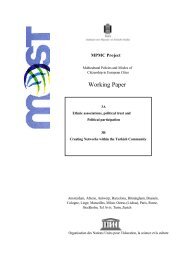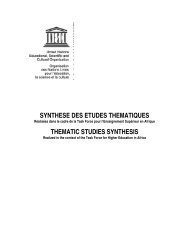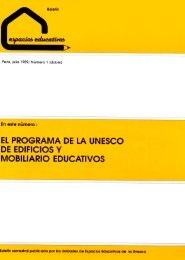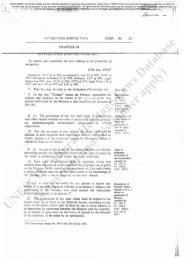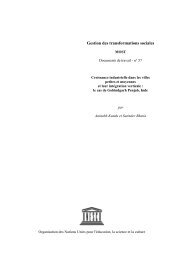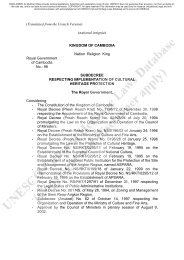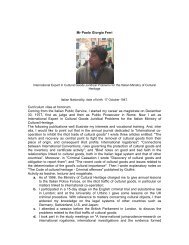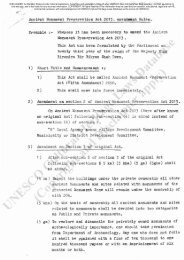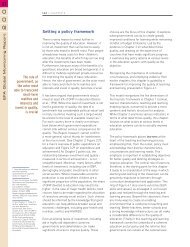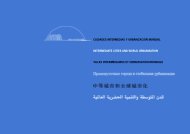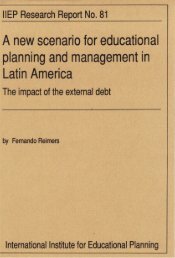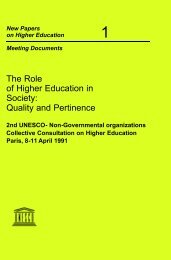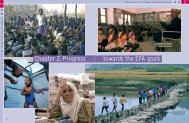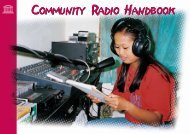Planning Workshop –Sustainable Management of Marginal - Unesco
Planning Workshop –Sustainable Management of Marginal - Unesco
Planning Workshop –Sustainable Management of Marginal - Unesco
You also want an ePaper? Increase the reach of your titles
YUMPU automatically turns print PDFs into web optimized ePapers that Google loves.
Recommendations on livelihoods‐ objective<br />
• Case studies highlighted that a wide range <strong>of</strong> livelihood relevant activities will continue to be<br />
implemented, while new alternative livelihoods will be explored, where appropriate.<br />
• Post harvest value‐addition through processing and labeling should be explored along with<br />
measures to improve market access for communities. These efforts can be supported by<br />
introducing micro‐financing schemes.<br />
• Health aspects in the work environment will be taken into account.<br />
• It will be critical to document monetary values <strong>of</strong> livelihood improvements in order to<br />
provide strong evidence to policy‐makers in a language relevant and understandable to<br />
them.<br />
2.2 Feedback on case study proposals<br />
At the workshop proposals for the following case studies were presented:<br />
• Hunshandake Sand area, China, by Dr Jiang Gaoming;<br />
• Heihe River area, China, by Dr Wang Tao;<br />
• Omayed Biosphere Reserve, Egypt, by Pr<strong>of</strong> Boshra B. Salem;<br />
• Area SW <strong>of</strong> the Gareh Bygone Plain, Iran, by Dr Mansour Esfandiari Baiat;<br />
• Dana Biosphere Reserve, Jordan, by Mr Ma’en Al Smadi;<br />
• Lal Suhanra Biosphere Reserve and Cholistan Desert, Pakistan, by Dr Muhammad<br />
Akram Kahlown;<br />
• Khanasser Valley, Syria, by Dr. Abdul‐Ghani Al‐Khaldi;<br />
• Zeuss‐Koutine Watershed, Tunisia, by Mr Mohamed Ouessar;<br />
• Study site in Rajasthan, India, by Dr N.L. Joshi;<br />
• Study site in the Bolivian Altiplano, by Dr Magali Garcia Cardenas; and<br />
• Mare aux Hippopotamus Biosphere Reserve, Burkina Faso, by Dr Jean‐Noel Poda.<br />
The first set <strong>of</strong> case study proposals was evaluated in terms <strong>of</strong> their contribution to the overall<br />
objectives identified for the second phase <strong>of</strong> the SUMAMAD project. This preliminary evaluation is<br />
summarized in the table below, which was completed with additional information provided by case<br />
study team leaders. (XX = major objective/activity well developed in proposal; X = major<br />
objective/activity mentioned in proposal; 0 = no mention <strong>of</strong> major objective/activity in proposal).<br />
6


